AEST to PST to CST to EST
Time Difference
Australian Eastern Standard Time is 17 hours ahead of Pacific Daylight Time and 15 hours ahead of Central Daylight Time and 14 hours ahead of Eastern Daylight Time
11:00 am11:00 in AEST is 6:00 pm18:00 in PDT and is 8:00 pm20:00 in CDT and is 9:00 pm21:00 in EDT
AEST to PST call time
Best time for a conference call or a meeting is between 10pm-12pm in AEST which corresponds to 4am-6am in PST
AEST to CST call time
Best time for a conference call or a meeting is between 9pm-11pm in AEST which corresponds to 5am-7am in CST
AEST to EST call time
Best time for a conference call or a meeting is between 8:30pm-10:30pm in AEST which corresponds to 5:30am-7:30am in EST
11:00 am11:00 Australian Eastern Standard Time (AEST). Offset UTC +10:00 hours
6:00 pm18:00 Pacific Daylight Time (PDT). Offset UTC -7:00 hours
8:00 pm20:00 Central Daylight Time (CDT). Offset UTC -5:00 hours
9:00 pm21:00 Eastern Daylight Time (EDT). Offset UTC -4:00 hours
11:00 am11:00 AEST / 6:00 pm18:00 PDT / 8:00 pm20:00 CDT / 9:00 pm21:00 EDT
| AEST | PDT | CDT | EDT |
|---|---|---|---|
| 12am (midnight) | 7am | 9am | 10am |
| 1am | 8am | 10am | 11am |
| 2am | 9am | 11am | 12pm (noon) |
| 3am | 10am | 12pm (noon) | 1pm |
| 4am | 11am | 1pm | 2pm |
| 5am | 12pm (noon) | 2pm | 3pm |
| 6am | 1pm | 3pm | 4pm |
| 7am | 2pm | 4pm | 5pm |
| 8am | 3pm | 5pm | 6pm |
| 9am | 4pm | 6pm | 7pm |
| 10am | 5pm | 7pm | 8pm |
| 11am | 6pm | 8pm | 9pm |
| 12pm (noon) | 7pm | 9pm | 10pm |
| 1pm | 8pm | 10pm | 11pm |
| 2pm | 9pm | 11pm | 12am (midnight) |
| 3pm | 10pm | 12am (midnight) | 1am |
| 4pm | 11pm | 1am | 2am |
| 5pm | 12am (midnight) | 2am | 3am |
| 6pm | 1am | 3am | 4am |
| 7pm | 2am | 4am | 5am |
| 8pm | 3am | 5am | 6am |
| 9pm | 4am | 6am | 7am |
| 10pm | 5am | 7am | 8am |
| 11pm | 6am | 8am | 9am |
| 0:00 | 7:00 | 9:00 | 10:00 |
| 1:00 | 8:00 | 10:00 | 11:00 |
| 2:00 | 9:00 | 11:00 | 12:00 |
| 3:00 | 10:00 | 12:00 | 13:00 |
| 4:00 | 11:00 | 13:00 | 14:00 |
| 5:00 | 12:00 | 14:00 | 15:00 |
| 6:00 | 13:00 | 15:00 | 16:00 |
| 7:00 | 14:00 | 16:00 | 17:00 |
| 8:00 | 15:00 | 17:00 | 18:00 |
| 9:00 | 16:00 | 18:00 | 19:00 |
| 10:00 | 17:00 | 19:00 | 20:00 |
| 11:00 | 18:00 | 20:00 | 21:00 |
| 12:00 | 19:00 | 21:00 | 22:00 |
| 13:00 | 20:00 | 22:00 | 23:00 |
| 14:00 | 21:00 | 23:00 | 0:00 |
| 15:00 | 22:00 | 0:00 | 1:00 |
| 16:00 | 23:00 | 1:00 | 2:00 |
| 17:00 | 0:00 | 2:00 | 3:00 |
| 18:00 | 1:00 | 3:00 | 4:00 |
| 19:00 | 2:00 | 4:00 | 5:00 |
| 20:00 | 3:00 | 5:00 | 6:00 |
| 21:00 | 4:00 | 6:00 | 7:00 |
| 22:00 | 5:00 | 7:00 | 8:00 |
| 23:00 | 6:00 | 8:00 | 9:00 |
Australian Eastern Standard Time
Offset: AEST is 10 hours ahead Greenwich Mean Time (GMT) and is used in Australia
Countries: It is used in following countries: Australia
Principal Cities: The largest city in the AEST timezone is Sydney from Australia with population about 4.627 million people. Other major cities in the area are Melbourne, Brisbane, Gold Coast, Canberra
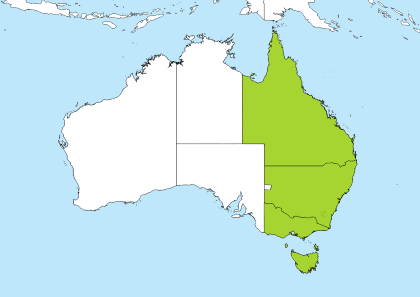
Daylight Saving: This is a standard timezone, however during summer some places switch clocks for one hour forward when daylight saving comes into effect and observe Australian Eastern Daylight Time (AEDT).
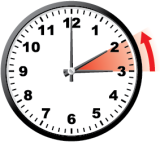 Start: Australian Eastern Standard Time (AEST) started on Sunday, April 6, 2025 at 3:00 am local time and clocks were set one hour back to Sunday, April 6, 2025, 2:00 am. Standard time starts annually the on first Sunday of April.
Start: Australian Eastern Standard Time (AEST) started on Sunday, April 6, 2025 at 3:00 am local time and clocks were set one hour back to Sunday, April 6, 2025, 2:00 am. Standard time starts annually the on first Sunday of April.
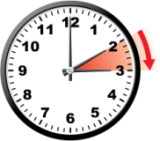 End: Australian Eastern Standard Time (AEST) ends on Sunday, October 5, 2025 at 2:00 am local time and clocks are set one hour forward to Sunday, October 5, 2025, 3:00 am local daylight time instead. Standard time starts annually the on first Sunday of October.
End: Australian Eastern Standard Time (AEST) ends on Sunday, October 5, 2025 at 2:00 am local time and clocks are set one hour forward to Sunday, October 5, 2025, 3:00 am local daylight time instead. Standard time starts annually the on first Sunday of October.
Australian Eastern Standard Time (AEST) is used in Queensland, Victoria, Tasmania, New South Wales (except Broken Hill), Australian Capital Territory and in folling major cities Brisbane, Sydney, Melbourne, Hobart, Canberra
Only part of Australia observe daylight saving. It is used in New South Wales, Victoria, South Australia, Tasmania, and the Australian Capital Territory. Daylight saving is not observed in Queensland, Western Australia or the Northern Territory.
AEST representations, usage and related time zones
- +10 - basic short
- +1000 - basic
- +10:00 - extended
- +1000 - sign character (+) followed by a four digit time providing hours (10) and minutes (00) of the offset. Indicates ten hour and zero minutes time differences to the east of the zero meridian.
- Kilo - Military abbreviation for AEST
- K - short form of 'Kilo'
- Antarctica/Macquarie
- Australia/ACT
- Australia/Brisbane
- Australia/Canberra
- Australia/Currie
- Australia/Hobart
- Australia/Lindeman
- Australia/Melbourne
- Australia/NSW
- Australia/Queensland
- Australia/Sydney
- Australia/Tasmania
- Australia/Victoria
- AEST - Australian Eastern Standard Time
- CHUT - Chuuk Time
- ChST - Chamorro Standard Time
- K - Kilo Time Zone
- KDT - Korea Daylight Time
- PGT - Papua New Guinea Time
- VLAT - Vladivostok Time
- YAKST - Yakutsk Summer Time
- YAPT - Yap Time
Pacific Standard Time
Offset: PST is 8 hours behind Greenwich Mean Time (GMT) and is used in North America
Countries: It is used in following countries: Canada, Mexico, United States
Principal Cities: The largest city in the PST timezone is Los Angeles from USA with population about 3.793 million people. Other major cities in the area are Vancouver, Tijuana, San Diego, San Jose
French: HNP - Heure Normale du Pacifique
Spanish: PT - Tiempo del Pacífico, PT - Zona Noroeste

Daylight Saving: This is a standard time zone, however during summer some places switch clocks for one hour forward when daylight saving comes into effect and observe Pacific Daylight Time (PDT).
 End: Pacific Standard Time (PST) has ended on Sunday, March 9, 2025 at 2:00 am local time and clocks were set one hour forward to Sunday, March 9, 2025, 3:00 am local daylight time instead. Standard time ends annually the on second Sunday of March.
End: Pacific Standard Time (PST) has ended on Sunday, March 9, 2025 at 2:00 am local time and clocks were set one hour forward to Sunday, March 9, 2025, 3:00 am local daylight time instead. Standard time ends annually the on second Sunday of March.
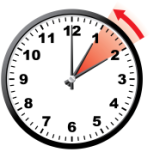 Start: Pacific Standard Time (PST) starts on Sunday, November 2, 2025 at 2:00 am local time and clocks are set one hour back to Sunday, November 2, 2025, 1:00 am. Standard time starts annually the on first Sunday of November.
Start: Pacific Standard Time (PST) starts on Sunday, November 2, 2025 at 2:00 am local time and clocks are set one hour back to Sunday, November 2, 2025, 1:00 am. Standard time starts annually the on first Sunday of November.
PST representations, usage and related time zones
- -08 - basic short
- -0800 - basic
- -08:00 - extended
- -0800 - sign character (-) followed by a four digit time providing hours (08) and minutes (00) of the offset. Indicates eight hour and zero minutes time differences to the west of the zero meridian.
- Uniform - Military abbreviation for PST
- U - short form of 'Uniform'
- America/Ensenada
- America/Los_Angeles
- America/Santa_Isabel
- America/Tijuana
- America/Vancouver
- Canada/Pacific
- Mexico/BajaNorte
- PST8PDT
- US/Pacific
- Pacific Standard Time - UTC -8
- Pitcairn Standard Time - UTC -8
- Peru Standard Time - UTC -5
- AKDT - Alaska Daylight Time
- PST - Pacific Standard Time
- PT - Pacific Time
- PST - Pitcairn Standard Time
- U - Uniform Time Zone
Central Standard Time
Offset: CST is 6 hours behind Greenwich Mean Time (GMT) and is used in North America
Countries: It is used in following countries: Belize, Canada, Costa Rica, Guatemala, Honduras, Mexico, Nicaragua, El Salvador, United States
Principal Cities: The largest city in the CST timezone is Mexico City from Mexico with population about 12.294 million people. Other major cities in the area are Chicago, Houston, Iztapalapa, Ecatepec
French: HNC - Heure Normale du Centre
Spanish: CT - Tiempo Central Estándar, CT - Zona Centro
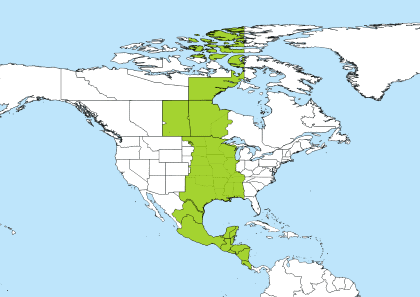
Daylight Saving: This is a standard time zone, however during summer some places switch clocks for one hour forward when daylight saving comes into effect and observe Central Daylight Time (CDT).
 End: Central Standard Time (CST) has ended on Sunday, March 9, 2025 at 2:00 am local time and clocks were set one hour forward to Sunday, March 9, 2025, 3:00 am local daylight time instead. Standard time ends annually the on second Sunday of March.
End: Central Standard Time (CST) has ended on Sunday, March 9, 2025 at 2:00 am local time and clocks were set one hour forward to Sunday, March 9, 2025, 3:00 am local daylight time instead. Standard time ends annually the on second Sunday of March.
 Start: Central Standard Time (CST) starts on Sunday, November 2, 2025 at 2:00 am local time and clocks are set one hour back to Sunday, November 2, 2025, 1:00 am. Standard time starts annually the on first Sunday of November.
Start: Central Standard Time (CST) starts on Sunday, November 2, 2025 at 2:00 am local time and clocks are set one hour back to Sunday, November 2, 2025, 1:00 am. Standard time starts annually the on first Sunday of November.
CST representations, usage and related time zones
- -06 - basic short
- -0600 - basic
- -06:00 - extended
- -0600 - sign character (-) followed by a four digit time providing hours (06) and minutes (00) of the offset. Indicates six hour and zero minutes time differences to the west of the zero meridian.
- Sierra - Military abbreviation for CST
- S - short form of 'Sierra'
- America/Bahia_Banderas
- America/Belize
- America/Chicago
- America/Chihuahua
- America/Costa_Rica
- America/El_Salvador
- America/Guatemala
- America/Indiana/Knox
- America/Indiana/Tell_City
- America/Knox_IN
- America/Managua
- America/Matamoros
- America/Menominee
- America/Merida
- America/Mexico_City
- America/Monterrey
- America/North_Dakota/Beulah
- America/North_Dakota/Center
- America/North_Dakota/New_Salem
- America/Ojinaga
- America/Rainy_River
- America/Rankin_Inlet
- America/Regina
- America/Resolute
- America/Swift_Current
- America/Tegucigalpa
- America/Winnipeg
- CST6CDT
- Canada/Central
- Canada/Saskatchewan
- Mexico/General
- US/Central
- US/Indiana-Starke
- Central Standard Time - UTC -6
- China Standard Time - UTC +8
- Cuba Standard Time - UTC -5
- Colombia Standard Time - UTC -5
- CST - Central Standard Time
- CT - Central Time
- MDT - Mountain Daylight Time
- EAST - Easter Island Standard Time
- GALT - Galapagos Time
- S - Sierra Time Zone
Eastern Standard Time
Offset: EST is 5 hours behind Greenwich Mean Time (GMT) and is used in North America
Countries: It is used in following countries: Bahamas, Canada, Haiti, Jamaica, Cayman Islands, Mexico, Panama, Turks & Caicos Is, United States
Principal Cities: The largest city in the EST timezone is New York City from USA with population about 8.175 million people. Other major cities in the area are Toronto, Montreal, Brooklyn, Borough of Queens
French: HNE - Heure Normale de l'Est
Spanish: ET - Tiempo del Este, ET - Zona Sureste
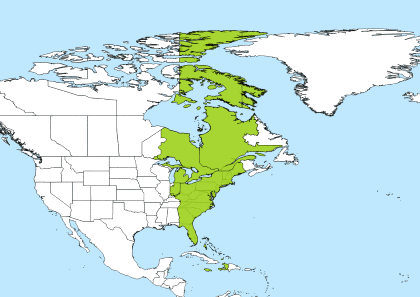
Daylight Saving: This is a standard time zone, however during summer some places switch clocks for one hour forward when daylight saving comes into effect and observe Eastern Daylight Time (EDT).
 End: Eastern Standard Time (EST) has ended on Sunday, March 9, 2025 at 2:00 am local time and clocks were set one hour forward to Sunday, March 9, 2025, 3:00 am local daylight time instead. Standard time ends annually the on second Sunday of March.
End: Eastern Standard Time (EST) has ended on Sunday, March 9, 2025 at 2:00 am local time and clocks were set one hour forward to Sunday, March 9, 2025, 3:00 am local daylight time instead. Standard time ends annually the on second Sunday of March.
 Start: Eastern Standard Time (EST) starts on Sunday, November 2, 2025 at 2:00 am local time and clocks are set one hour back to Sunday, November 2, 2025, 1:00 am. Standard time starts annually the on first Sunday of November.
Start: Eastern Standard Time (EST) starts on Sunday, November 2, 2025 at 2:00 am local time and clocks are set one hour back to Sunday, November 2, 2025, 1:00 am. Standard time starts annually the on first Sunday of November.
EST representations, usage and related time zones
- -05 - basic short
- -0500 - basic
- -05:00 - extended
- -0500 - sign character (-) followed by a four digit time providing hours (05) and minutes (00) of the offset. Indicates five hour and zero minutes time differences to the west of the zero meridian.
- Romeo - Military abbreviation for EST
- R - short form of 'Romeo'
- America/Atikokan
- America/Cancun
- America/Cayman
- America/Coral_Harbour
- America/Detroit
- America/Fort_Wayne
- America/Grand_Turk
- America/Indiana/Indianapolis
- America/Indiana/Marengo
- America/Indiana/Petersburg
- America/Indiana/Vevay
- America/Indiana/Vincennes
- America/Indiana/Winamac
- America/Indianapolis
- America/Iqaluit
- America/Jamaica
- America/Kentucky/Louisville
- America/Kentucky/Monticello
- America/Louisville
- America/Montreal
- America/Nassau
- America/New_York
- America/Nipigon
- America/Panama
- America/Pangnirtung
- America/Port-au-Prince
- America/Thunder_Bay
- America/Toronto
- Canada/Eastern
- EST
- EST5EDT
- Jamaica
- US/East-Indiana
- US/Eastern
- US/Michigan
- CDT - Central Daylight Time
- EST - Eastern Standard Time
- ET - Eastern Time
- COT - Colombia Time
- CST - Cuba Standard Time
- EASST - Easter Island Summer Time
- ECT - Ecuador Time
- PET - Peru Time
- R - Romeo Time Zone
